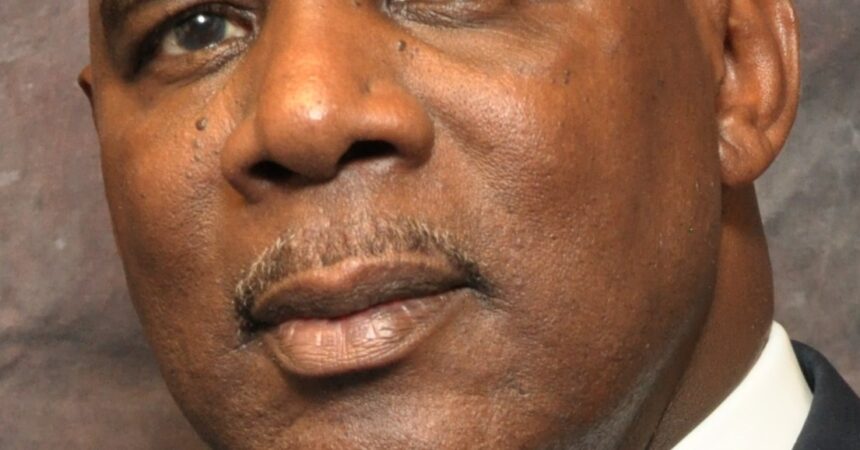
‘Freedom Schools’ key to primary goal of teaching African American history

EDITOR’S NOTE: This is the third in a series about the work of the Remembering Our Past…Redefining Our Present…Reaffirming Our Future: “The Teaching Our Own History” Task Force.
By Rev. Dr. Robert M. Spooney
Special to the Outlook
The decision in 2023 by the Florida Department of Education to change the narrative regarding African-American history in the United States and specifically in the state of Florida has caused the Florida General Baptist Convention Incorporated, under the leadership of Reverend Dr. Carl Johnson, President to establish a statewide task force on African-American history.
The task force, which is called the “Teaching Our Own History” task force, is composed of academicians in the fields of education and history, church and Civic leaders and nonprofit organizations. The task force primary goal is to develop and present to the Florida Department of Education a comprehensive curriculum that correctively and effectively teaches African and African-American history to students in Florida’s Public Schools.
Additionally, the task force plans to develop 40 or more “Freedom Schools” throughout the state of Florida by 2025 and encourage the three private HBCUs in Florida to develop laboratory schools on their own campuses.
This article will extol the efforts of the Black History Project, Inc. which is one of the partner organizations of the task force. Founded in 2015 by Ms. Kristin Fulwyle, the Black History Project fundamental mission is to teach Black history and empower students through education to live out the legacy of Black leaders who came before them.
We study history because history doesn’t stay behind us. Studying history helps us understand how events in the past made things the way they are today. With lessons from the past, we not only learn about ourselves and how we came to be, but also develop the ability to avoid mistakes and create better paths for our societies. The organization stresses the importance of African American History through the following pillars:
Representation and Identity: We believe African American history provides stories, achievements, and contributions that have often been overlooked or marginalized in mainstream narratives. Learning about Black historical figures and their accomplishments allows Black youth to see themselves represented positively and provide a sense of pride, identity, and belonging. It helps counter negative stereotypes and fosters self-esteem, empowering them to embrace their heritage and cultural identities.
Cultural Understanding and Appreciation: We believe by studying African American history, young people of all backgrounds gain a deeper understanding of the diverse experiences, struggles, and triumphs of Black communities. It promotes cultural empathy, respect, and appreciation for the unique contributions Black individuals have made to society in various fields, including science, art, literature, music, sports, politics, and more. This knowledge fosters a more inclusive and compassionate society by challenging stereotypes, promoting multiculturalism, and celebrating diversity.
Awareness of Social Injustices: We believe African American history encompasses stories of resilience, resistance, and the ongoing struggle for equality and justice. Learning about the historical context of racism, discrimination, and systemic oppression helps young people understand the roots of contemporary social issues. It encourages critical thinking, empathy, and a commitment to dismantling systemic barriers and working towards a more equitable society. It also enables youth to recognize and challenge injustice in their own communities, fostering a sense of activism and social responsibility.
Empowerment and Inspiration: We believe African American history is full of examples of individuals and communities who have overcome tremendous obstacles to create positive change. By exposing young people to these stories, they are inspired to believe in their own abilities and potential to effect change. Learning about the achievements and struggles of Black activists, leaders, and trailblazers can motivate youth to become agents of change themselves, fueling their passion for social justice, activism, and community engagement.
Shaping a More Inclusive Narrative: We believe African American history provides a more complete and accurate understanding of the past, ensuring that historical accounts are not one-sided or biased. By including diverse perspectives, experiences, and narratives, we can challenge dominant narratives that continue inequality and foster a more inclusive historical record. This leads to a more comprehensive understanding of our shared history and encourages critical thinking and a questioning of the status quo.
The Black History Project concept highlights and provides for historical analysis of events from enslavement in Africa to Civil Rights to the Black Lives Matter Movement. The curriculum allows for a critical review of events during American Enslavement, the Civil War and Reconstruction, the Jim Crow Era, the Civil Rights Movement, the Black Panther Party Movement, the New Jim Crow and the Black Lives Matter Movement and beyond.
The fight for social justice and educational parity is an ongoing battle. The dismantling of programs of diversity, equity and inclusion within our state and throughout this nation is an insult. We must not remain silent. I encourage you to assist in this effort as we continue to speak “Truth to Power.” To quote Frederick Douglass, “We are one, our cause is one and we must help each other, if we are to succeed.”
Please contact Dr. Linda Fortenberry at (850) 222-8440 for further information on this issue.
Rev. Dr. Robert M. Spooney is Pastor at Mt. Zion Missionary Baptist Institutional Church and Assistant General Secretary, Florida General Baptist Convention, Inc.







